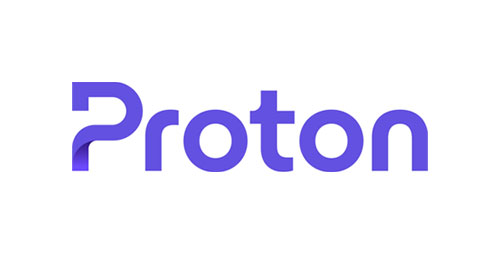Proton was started in Switzerland in 2014 by scientists who met at the European Organization for Nuclear Research (CERN). Proton’s vision is to build an internet where privacy is the default through an ecosystem of services accessible to everyone, everywhere, every day.
Proton’s first product, Proton Mail, is now the world’s largest encrypted email service. Subsequent Proton products such as Proton VPN, Proton Calendar, Proton Drive and Proton Pass leverage the same advanced encryption to give users full control over how and with whom their data is shared. Proton products are open source, developed by a team of over 400, and supported by an active community in more than 180 countries.
Today, Proton is making privacy universally accessible with over 100 million sign ups, including journalists, some of the world’s largest public and private organizations, and people around the world. However, this vital support for customers is under threat by the unfair practices perpetuated by Apple and Google.
"Apple’s position is essentially the following: As long as you are not big enough to seriously compete with us, you’re eligible for lower fees, but once you start getting traction, we will immediately use anti-competitive pricing to reinforce our dominance."
- Andy Yen (founder and CEO)
The App Tax
The first issue raised by Proton is the 30% in-app purchase commission, which is having a highly detrimental impact on Proton’s business model and its users. Proton Mail operates a ‘freemium’ business model, in which it provides basic services for free and charges users who want a premium version of the services. Any in-app purchases of the premium subscription service are subject to the 30% commission imposed by Apple and Google.
The Proton Mail app was first offered to iOS users on the App Store in 2016. At that time Apple did not require apps to use its proprietary in-app payment system and Proton users were able to pay for a premium subscription exclusively and directly through Proton’s website. Then in 2018, Apple issues Proton with a demand: move in-app purchases to the Proton Mail app to Apple, or face removal from the App Store.
Because Proton was forced to sell from within the App Store, and prohibited from steering customers to its website, the company had no choice but to sell products at a higher price, which negatively impacted customer conversion rates.
Google began enforcing its similar payment policy in 2022. Proton products compete directly with Google products: email, calendar, file storage, VPN, and password manager. Proton users typically make the switch from Google because they are seeking a private and secure alternative, yet they are unknowingly still subsidizing Google products by paying Google Play Store’s fees. This clearly demonstrates the business-threatening impact of Apple’s and Google’s selfish app store.
Self-Preferencing
Due to clash of interests between Proton Mail and Gmail and iCloud Mail, it becomes inevitable that self-preferencing by Apple and Google is stifling competition. Proton Mail’s business model is seriously impacted by the self-preferencing powers that Apple and Google possess due to the monopoly control they exert across mobile operating systems and app stores.
Email today functions as an identification service, and Google ties Gmail to its other products by only enabling Google account logins. Android users are not able to access and use the Play Store without a Google account. Therefore, a user that wishes to download the Proton Mail app—a competitor to Gmail—must use a Gmail account to do so. This demonstrates a clear abuse of power.
Similarly, the ability of Google and Apple to pre-install their own apps and make it cumbersome for the user to change default settings means that users must take additional steps to switch to a competitor like Proton, steps that often a casual consumer is not able or willing to take.
In addition, the status quo currently has a highly detrimental, and potentially dangerous, relationship with security and privacy, especially given the secure nature of Protons services. The 30% fees charged by Apple and Google incentivize app developers to choose surveillance advertising business models instead of subscription models, hurting consumer privacy and competition. Proton has no ads and does not sell user data, choosing instead to monetize through premium subscriptions.

